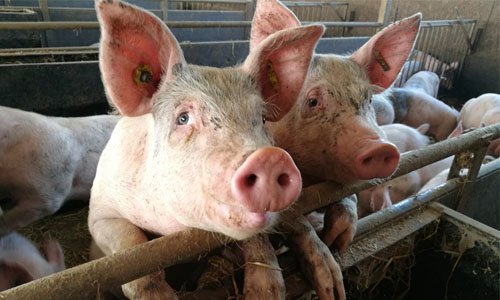In an animal trial, a gene treatment targeted at restoring the heart’s potential for self-repair showed early promise.
The pig study discovered that the therapy method was not only possible but also enhanced the animals’ cardiac function after they had suffered heart attack damage.
Pig Study Might Pave The Way For Gene Therapy To Avert Heart Failure
There is still a long way to go before a comparable gene therapy might be used to treat human heart attack patients. The findings, however, confirm that cardiac muscle cells may be encouraged into dividing and spreading to aid in the healing of injured tissue, according to the researchers.

According to senior researcher Dr. James Martin, a professor at Baylor College of Medicine in Houston, the aim is to one day have a treatment that would prevent heart attack patients from developing heart failure.
Heart failure is a chronic disease in which the heart’s ability to pump blood efficiently enough to satisfy the body’s demands have deteriorated. It can be caused by a variety of factors, the most frequent of which is a heart attack.
During a heart attack, the organ is deprived of blood and oxygen, resulting in the death of a part of the muscle. Scar tissue replaces the injured region, limiting the heart’s capacity to pump blood and often leading to heart failure.
The ultimate objective of this gene therapy study, according to Martin, is to stop the downward cycle.
The human heart, as brilliant as it is, lacks a mechanism for self-repair. Cardiomyocytes (heart muscle cells) have a restricted ability for regeneration.
According to Martin, human heart cells developed to become extremely specialized, committed to delivering a powerful, steady pump that lasts for decades. They do not divide and multiply in the manner required for tissue regeneration.
The experimental gene therapy utilized in this work targets a mechanism in the human body known as the Hippo signaling pathway, which usually controls the proliferation of cells in the heart and other organs.
That is an essential role. Martin believes that if the Hippo route was turned off across the heart, it would be disastrous.
However, his team reasoned that inhibiting the Hippo pathway in a restricted manner, among surviving cells around the region of heart attack damage, may be beneficial.
They used gene therapy to do this. The researchers employed a non-infectious virus to transmit genetic material – a bit of RNA – intended to shut down a specific gene in the Hippo pathway.
The viral vector was delivered directly into regions of heart attack damage in pig hearts. The treated pigs exhibited evidence of freshly produced cardiac cells, reduced scar tissue, and some tiny blood vessel development after three months, according to the researchers.
The animals’ ejection fraction – a measure of the heart’s pumping capacity – improved by 14 percent on average.
Dr. Arthur Feldman, a professor at Temple University’s Lewis Katz School of Medicine in Philadelphia, described the study brilliantly.
Feldman, who was not involved in the study, is researching gene therapy for a kind of heart failure caused by abnormalities in the BAG3 gene.
He said that that technique, which aims to replace a faulty gene, differs from the one employed here, which aimed to inhibit a normal mechanism in the heart and stimulate self-repair.
Feldman described the notion as interesting but added that key issues must be answered before the method can be tested on humans.
For good reason, the Hippo pathway restricts cellular spread as it regulates organ size and contains genes implicated in tumor suppression.
One issue, according to Feldman, is that blocking the Hippo pathway may result in excessive cell proliferation, especially in other organs.
Another concern, he says, is whether stimulating muscle development in just one region of the heart might cause arrhythmias.
In this investigation, researchers discovered no evidence of malignancies in the lungs or livers of the treated pigs. And, in the end, the treatment may be self-limiting, according to Martin. One reason for this is that as cardiac muscle cells begin to divide and reach a higher density, the Hippo pathway is activated again.
Martin, on the other hand, acknowledged that there is still a lot of work to be done.
He stated that researchers would continue to test the technique on animals to confirm that it is safe for the heart and has no unexpected consequences for other organs.
